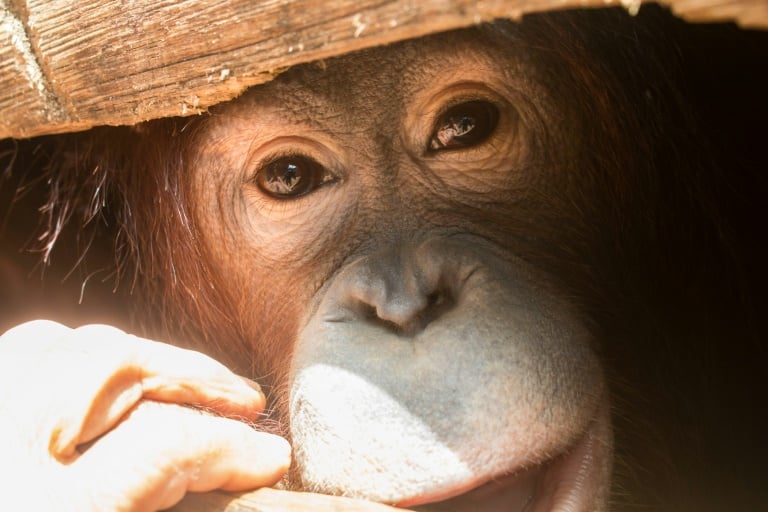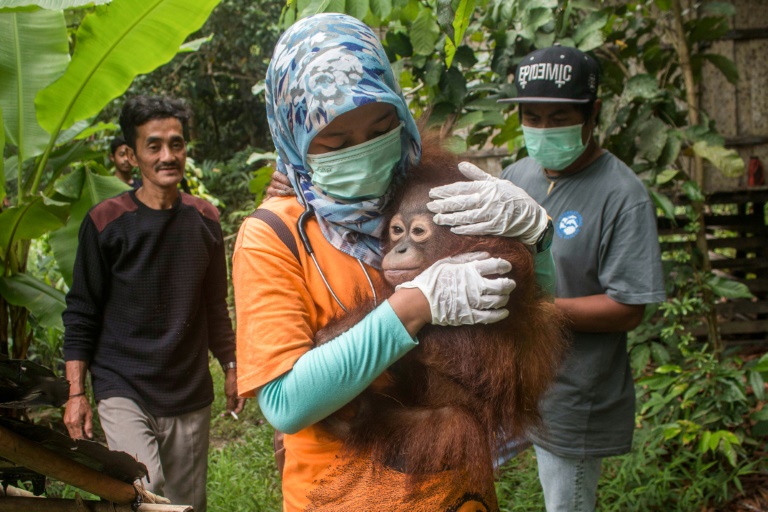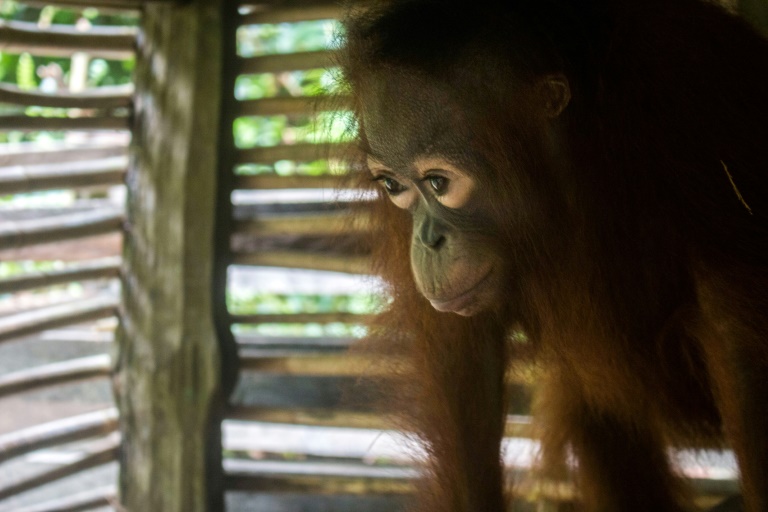URC state of affairs: Bulls take aim at Glasgow, Stormers into top 8
The tiny primate, covered in fuzzy auburn hair, is one of three Bornean orangutans saved in Indonesia over the past two weeks.
Environmentalists and local officials rescued Utu and another youngster, Joy, from tiny 1.5 by one metre (five by three feet) cages where they were kept as house pets in West Kalimantan on the island of Borneo.

The rescues are a rare spot of bright news for the critically endangered species, after a string of fatal attacks on the great apes which have been blamed on farmers and hunters
A third orangutan named Tomang was moved from a village in the same province where he had been raiding fruit trees, angering local villagers.
Joy and Utu will now spend years learning to fend for themselves before being released into the wild, while Tomang has been set free into Gunung Palung National Park.
The rescues are a rare spot of bright news for the critically endangered species, after a string of fatal attacks on the great apes that have been blamed on farmers and hunters.

Utu the orangutan being carried after being rescued from villagers
Four Indonesian men were arrested over the killing of an orangutan shot some 130 times with an air rifle in February.
Borneo police have also arrested two rubber plantation workers and accused them of shooting an orangutan multiple times before decapitating it.
Plantation workers and villagers are sometimes known to attack an animal that they see as a pest, while poachers also capture them to sell as pets.
A viral video of an orangutan puffing on a cigarette flicked into its zoo enclosure by a visitor this month highlighted Indonesia’s abysmal record of animal protection.

Conservation workers say such rescues are doomed to be repeated unless forest clearing is tackled
Conservation workers said rescues like those of Joy and Utu were doomed to be repeated unless forest clearing was tackled.
“We need to work with all stakeholders, not just citizens and governments, but also companies that have plantation land in or around orangutan habitat,” said Karmele L. Sanchez, programme director for International Animal Rescue.
Download our app